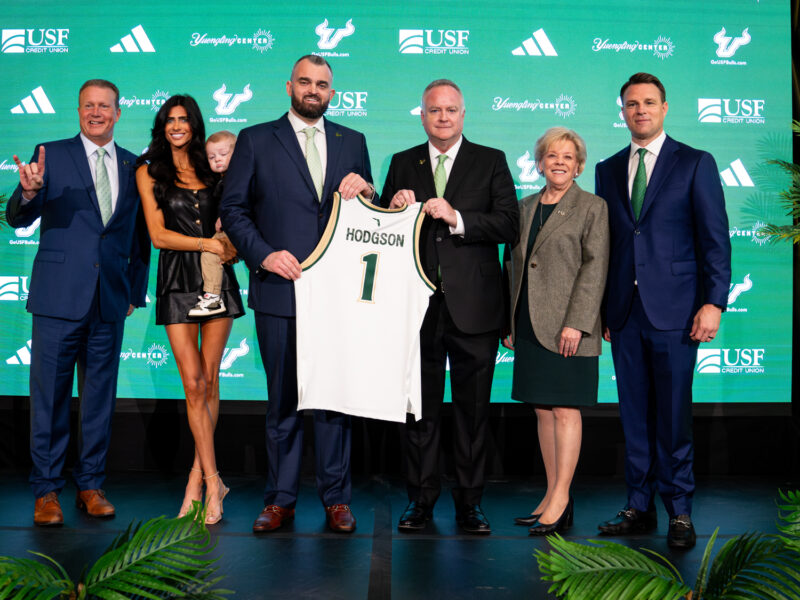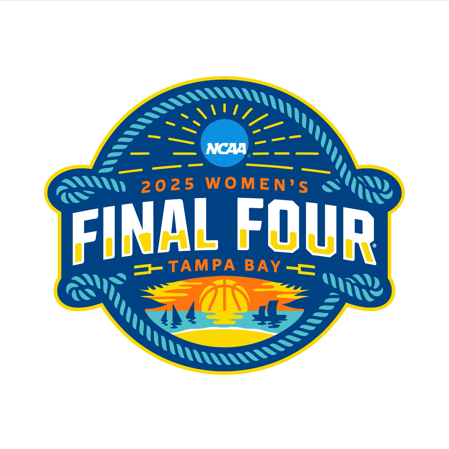Pictured Above: According to data compiled by a New York Times survey, COVID-19 cases are on the rise at universities, with Florida State University holding the highest positive case right of Florida’s public universities.
Darnell Henderson | The Crow’s Nest
By Molly Ryan
The University of South Florida has reported far less positive COVID-19 cases than many other Florida universities.
USF entered “Phase II” of the coronavirus mediation plan on Aug. 7, allowing residence halls to open, requiring face coverings indoors and outdoors and the completion of daily symptom checks and only allowing a limited amount of classes to be held face-to-face.
However, consolidation does not veil the fact that there are gaping differences in the campus’ populations, cultures and (now due to the current zeitgeist) COVID-19 cases.
According to a New York Times article tracking university cases nationwide, the USF Tampa campus holds 270 with a student body of 32,238—a distinct contrast to the St. Petersburg campus at 13 and the Sarasota-Manatee campus at 6.
The university updates its new cases daily on its website, specifying the campus and the status of the student or faculty. The spike in cases since Labor Day weekend comes almost entirely from the Tampa campus, with the exception of a few sporadic cases from the two smaller and less densely populated campuses.
Other Florida universities have experienced much more serious influxes of cases.
When Florida State University started its fall semester, it promoted the expectation of students to maintain their distance, don their masks and take advantage of the numerous hand sanitizer stations around campus while fostering ways for students to socialize through university clubs, organizations and interest gatherings.
Hoping to give some of its 32,472 students the feel of normalcy, the universities’ docket offered both virtual and in-person classes—albeit at 25 to 50 percent capacity.
However, it has become evident that this taste of normalcy was not enough for some at FSU.
“It feels as though students do not make the effort to wear a mask or socially distance outside of class,” said Kayla Kosarich, a freshman at FSU. “I see a new video of a frat party almost every day. It’s insane.”
As the student body resumed academic activity after returning from Labor Day weekend, the university experienced a surge of positive COVID-19 cases. According to FSU News’ statistics as of Sept. 8, the university’s count is now up to 839 students and 14 faculty and staff members.
The university put out an update through their news site on Sept. 8 concerning the issue expressing that “administrators are aware of the increase of positive cases” and are “providing university programs and services to support our students, faculty and staff.”
The update also includes that “Florida State has implemented additional mitigation measures, such as reducing both the number and size of student events, restricting access to Greek houses to residents only and prohibiting tailgating…”
There is no indication of changing housing arrangements on campus as “FSU has capacity to continue to isolate on-campus residential students who are positive” and plans to begin “random surveillance testing” on Sept. 14.
Although the University of Central Florida and the University of Florida are the two largest universities in the state—both maintain a lower amount of cases than FSU.
The universities started out as most did: staggered move-ins, standard COVID-19 guidelines and a collective hope that things would just go back to normal.
A common theme between all three universities is the emphasis on maintaining both one’s safety and one’s social life—and the student body taking the latter too far.
“The increase in positive cases we are seeing on campus this weekend is in keeping with what the University of Florida and UF Health anticipated and planned for,” according to a Sept. 6 Labor Day update from UF.
However, since the initial rise in positives on a campus of 52,218, cases gradually continued to increase; as of Sept. 10, 350 students and 28 members of the faculty and staff are confirmed to be positive with the virus with 661 total UF affiliates in isolation.
About two hours south of Gainesville, UCF sits at 411 cases with a student body of approximately 69,525 (as of Fall 2019).
The academic year at UCF began with the university providing resources for potentially uneasy students, such as mask distribution stations around campus, but it was no match for the contagious nature of the virus paired with the irresponsibility of some students.
“COVID-19 has changed so much about our fall 2020 semester, from how we learn and live to how we engage with one another,” said an update from the university on Sept. 10.
As a result of the unprecedented situation, cornerstone events such as Family Weekend and Homecoming, have been postponed until further notice.
Editor’s Note
This article was updated on Sept. 18, 2020, to correct numbers presented in the featured chart.



